Genomics and Clinical Microbiology
19–24 January 2020
Wellcome Genome Campus, UK
Cutting-edge molecular and genomic techniques for microbiological diagnostics and infection epidemiology.
Summary
The future of microbiological diagnostics and infection epidemiology is increasingly centred on rapid molecular testing and the application of nucleotide sequencing technologies. Consequently, practitioners in clinical microbiology and related areas have to process and interpret molecular data, which are very different from the information generated by familiar culture-based and serological microbiology techniques.
To demystify this crucial, exciting, and expanding area, the Genomics and Clinical Microbiology Advanced Course combines hands-on laboratory and bioinformatics work with faculty lectures by, and small-group discussions with, leaders in the field. The course equips consultants , clinical scientists, and specialist registrars, in infection disciplines with sufficient understanding of these areas to meet these challenges. There is an emphasis on on the application of molecular and genomic techniques that are currently being implemented, but also explores approaches that will enter practice in the near future.
The programme includes sample collection and preparation; characterization of specimens with a variety of molecular techniques; and data interpretation and dissemination, using a range of practical approaches.
The practical part of the course provides laboratory and computer sessions that examine the application of molecular, specifically genomic, techniques to three clinical scenarios:
(i) tuberculosis;
(ii) healthcare associated infections
(iii) encapsulated bacteria.
There will be demonstrations of the uses of different approaches in these clinical areas. Participants will analyse data generated on the course to make clinical and infection control decisions.
PLEASE NOTE: bursaries are available for clinical and academic applicants from anywhere in the world to attend this course, see below for details. This includes bursaries for UK registrars. In addition, CPD accreditation is sought annually from the Royal College of Pathologists (44 credits awarded in 2019).
Programme
The course will include laboratory, computational and lecture/discussion sessions covering a range of diagnostic techniques including:
- Design, implementation, and interpretation of real-time PCR tests for pathogen detection;
- Molecular approaches to detect multiple pathogens;
- Whole genome sequencing (WGS);
- PCR and sequence-based isolate characterisation
- Bioinformatics and data interpretation;
- Outbreak investigation and public health application;
- Data analysis, interpretation, display and dissemination
Issues explored in these sessions will include:
- Practical aspects of developing a molecular diagnostic service;
- Conceptual basis and background to microbial phylogenetic analysis and population biology;
- Specimen collection and contamination problems;
- Whole genome sequencing technologies and clinical applications
- Technique discrimination – identifying the question and choosing the appropriate technique;
- Case studies demonstrating the relative merits of different approaches;
- Presenting molecular data in the context of clinical scenarios
CPD accreditation
CPD accreditation is sought annually from the Royal College of Pathologists (44 credits awarded in 2019).
Learning Outcomes
Having completed the course, participants will have acquired:
- An advanced understanding of the theoretical bases of pathogen genomics, including the application of population genomics to epidemiology and clinical microbiology;
- A wide appreciation of the currently available technologies for whole genome analysis and likely future developments;
- A thorough knowledge of the clinical applications of genomics in developing diagnostics and how these can be deployed and exploited in clinical settings;
- An overview of the latest research and development in the area, informed by state-of-the-art examples
By the end of the course, participants will have performed:
- A range of molecular analyses, including whole genome sequencing on diverse platforms;
- A variety of molecular diagnostic techniques that depend on genomics;
- Data analysis using a wide variety of software, including variant mapping and gene-by-gene analysis;
- An investigation of three clinical scenarios that illustrate how the techniques, software, and theoretical approaches covered can be applied in real-world situations.
Instructors and speakers
COURSE INSTRUCTORS
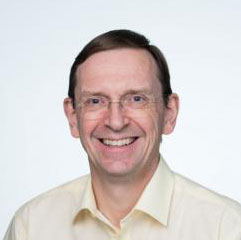
Martin Maiden
University of Oxford, UK
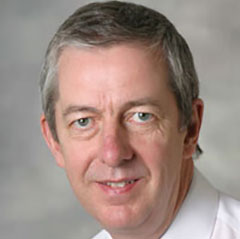
Stephen Gillespie
University of St Andrews, UK
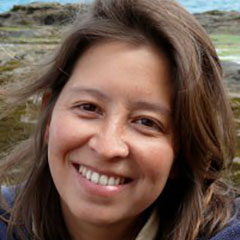
Estee Torok
University of Cambridge, UK
GUEST SPEAKERS
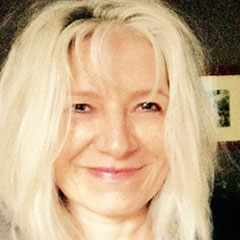
Cath Arnold
Public Health England, UK
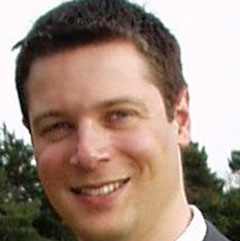
Xavier Didelot
Imperial College London, UK
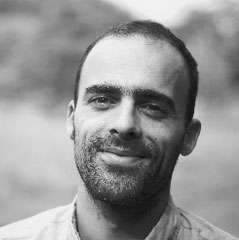
Nuno Faria
University of Oxford, UK
How to apply
Prerequisites
Applicants should be clinical scientists, specialist registrars or consultants in medical microbiology.
Applications
Click on the Apply button above to begin the application process. Places are limited and will be awarded on merit. If you have any problems with the online application process, please contact us.
Please note: Applications must be supported by a recommendation from a scientific or clinical sponsor (e.g. supervisor, line manager, or head of department). A request for a supporting statement will be sent to your nominated sponsor automatically during the application process. Applicants must ensure that their sponsor provides this supporting statement by the application deadline. Applications without a supporting statement cannot be considered.
Travel visas
Please contact the event organiser if you require a letter to support a travel visa application to the UK. Note that letters will only be provided to confirmed attendees.
Non-European Economic Area or Swiss nationals may be required to have a visa to enter the UK. Early application is strongly advised, as this process can take 6-8 weeks or longer.
Please visit the following websites for further information: UK Border Agency website and information for general visitors and business visitors.
Cost
| Cost | Accommodation / meals | |
| *Course fee | £800 | This is a residential course and the fee includes all accommodation and meals. |
*The course fee is subsidised by Wellcome Genome Campus Advanced Courses and Scientific Conferences and applies to non-commercial applicants. Please contact us for the commercial fee.
Bursaries
Advanced Courses are subsidised for non-commercial applicants from anywhere in the world. Additional, limited bursaries are available (up to a 50% reduction of the course fee) and are awarded on merit. If you would like to apply for a bursary, please complete the bursary section of the online application form.
Please note that both the applicant and sponsor are required to provide a justification for the bursary as part of the application.
Additional funding opportunities
Visit our support page for additional financial support currently available.
Testimonials
Feedback from the 2019 Course
“Thank you so much to everyone. This was a superb course. The food was amazing and never felt decaffeinated or hungry, which is super important. The accommodation was great too. Staff were very friendly, knowledgeable, patient and good fun. Seriously great.”
“This was a valuable course which allowed a great opportunity for discussion and for networking.”
“Excellent support for breastfeeding mothers (pumping room) and those with caring responsibilities (with easy to access careers bursary to support attendance.)”
“Great course, thanks to all who organised and taught! Will highly recommend it to others”
“Thanks to all the hard work and organisation from the instructors, organisers and everyone involved.”
“Thank you for accommodating me in this course. I hope that you continue to accept international participants like me. Surely, the best form of feedback from a PhD student like me is the completion of my dissertation and its eventual publication. This course will be instrumental in the completion of my study and will be an excellent spring board for future studies that should impact some of the public health programs in the Philippines.”

